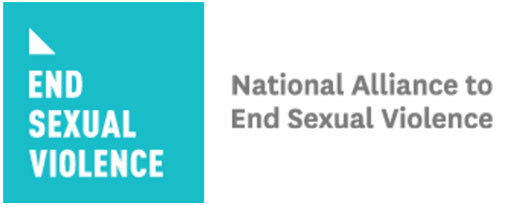Sexual violence occurs on a continuum of complex and difficult crimes having devastating impacts on victims. According to the United States Department of Justice Bureau of Justice Statistics, only 31% of rapes are reported to law enforcement.1 The term “forcible rape” is used in the Uniform Crime Report by the Federal Bureau of Investigation to report incidents of rape and is defined very narrowly excluding many forms of criminal sexual behavior.2 Use of the term “forcible rape” in the Uniform Crime Report coupled with the underreporting of the crime has led to very limited statistical picture of sexual violence. Additionally, the term “forcible rape” fails to track either federal or state law relating to sexual crimes.
Every area of a victim’s life is affected by sexual violence whether it is a child sexually abused by a family member, a teenager coerced into sex by an older man, a college student drugged and assaulted at a party, or an adult raped by a stranger or by her ex-husband. Advocates at 1300 rape crisis centers across the United States bear witness to the trauma of sexual violence every day and see the torment caused by the loss of power and control over one’s body-one’s most intimate self-that is at the heart of sexual violence.
We know that at least 1-5% of sexual assaults results in pregnancy.3 In 2008, the Supreme Court of California upheld that pregnancy resulting from rape constitutes great bodily injury.4 Most of us can’t imagine what it would be like to face that pain. The cornerstone of our work as advocates is supporting victims in regaining control over their bodies and lives by explaining all available options and supporting the victim’s decision about which option to choose. If after exploring all of her options, a victim of any form of sexual violence decides that she cannot go through with a pregnancy resulting from the crime, we should not add any hurdles or barriers to the process.
A narrow exemption for “forcible rape” fails to address the reality of women who become pregnant against their will. At the very least, such an exemption must include all cases of rape. Congress and the federal government should cease using the term “forcible rape” in any context, including abortion legislation, because the term limits our understanding of both the nature and extent of sexual violence in our nation. Additionally, to ensure that low-income victims of rape and incest have access to reproductive choices, states should not be permitted to exclude Medicaid coverage for abortion in these cases.
Organizations supporting NAESV’s statement:
National:
ALAS: The National Latina Alliance Against Sexual Violence
Arte Sana
Break the Cycle
Casa de Esperanza
Family Violence Prevention Fund
Institute on Domestic Violence in the African-American Community
Jewish Women International
Joyful Heart Foundation
Legal Momentum
National Center for Victims of Crime
National Center on Domestic and Sexual Violence
National Coalition Against Domestic Violence
National Congress of American Indians Task Force on Violence Against Women
National Council of Jewish Women
National Domestic Violence Hotline
National Latino Alliance for the Elimination of Domestic Violence (Alianza)
National Network to End Domestic Violence
National Organization of Sisters of Color Ending Sexual Assault
National Resource Center on Domestic Violence
National Sexual Violence Resource Center
Women of Color Network
State/Local:
Arkansas Coalition Against Sexual Assault
California Coalition Against Sexual Assault
Colorado Coalition Against Sexual Assault
Connecticut Sexual Assault Crisis Services
ContactLifeline/Sexual Assault Network of Delaware
Day One Rhode Island
DC Rape Crisis Center
Florida Council Against Sexual Violence
Hawaii State Coalition Against Domestic Violence
Houston Area Women’s Center
Illinois Coalition Against Sexual Assault
Indiana Coalition Against Sexual Assault
Iowa Coalition Against Sexual Assault
Jane Doe, The Massachusetts Coalition Against Sexual Assault and Domestic Violence
Kansas Coalition Against Sexual and Domestic Violence
Louisiana Foundation Against Sexual Assault
Maine Coalition Against Sexual Assault
Maryland Coalition Against Sexual Assault
Michigan Coalition Against Domestic and Sexual Violence
Minnesota Coalition Against Sexual Assault
Mississippi Coalition Against Sexual Assault
Missouri Coalition Against Domestic and Sexual Violence
Montana Coalition Against Domestic and Sexual Violence
North Dakota Council on Abused Women’s Services
New Hampshire Coalition Against Domestic and Sexual Violence
New Jersey Coalition Against Sexual Assault
New Mexico Coalition of Sexual Assault Programs
New York Coalition Against Sexual Assault
North Carolina Coalition Against Sexual Assault
Oklahoma Coalition Against Domestic Violence and Sexual Assault
Oregon Coalition Against Domestic and Sexual Violence
Panhandle Crisis Center, Perryton, TX
Pennsylvania Coalition Against Domestic Violence
Pennsylvania Coalition Against Rape
Tennessee Coalition Against Domestic and Sexual Violence
Texas Association Against Sexual Assault
Washington Coalition of Sexual Assault Programs
West Virginia Foundation for Rape Information and Services
Wisconsin Coalition Against Sexual Assault
References:
- http://bjs.ojp.usdoj.gov/content/pub/press/rcp00pr.cfm
- http://www2.fbi.gov/ucr/cius2009/offenses/
violent_crime/forcible_rape.html - Holmes, M.M., et al. (1996). Rape-related pregnancy: Estimates and descriptive characteristics from a national sample of women. American Journal of Obstetrics and Gynecology, 175(2): 320-25.
- People v. Cross, 45 Cal. 4th 58 (2008).
For more information, please contact: Monika Johnson Hostler, board president, at monika@nccasa.org or Terri Poore, policy chair, at tpoore@fcasv.org.


